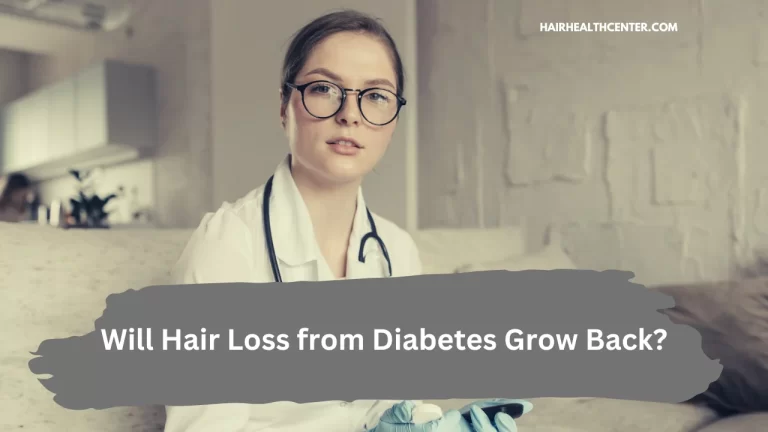Will Hair Loss From Statins Grow Back?
Contents
Ever asked yourself the question, “will hair loss from statins grow back?” If so, you’re in the right place! There are numerous causes of hair loss. A brief course of certain statins may cause you to lose your hair. However, after you stop using the medications, hair loss typically stops.
Now, as we age, many of us are faced with the issue of hair loss. For some, it’s a slow and gradual process. For others, it can happen much more quickly.
As already noted, one potential cause of hair loss is a class of drugs called statins. They’re common among middle-aged adults, as high cholesterol is more prevalent in this age group.
But can taking statins REALLY lead to hair loss? Let’s take a look at the research on this topic.
What Are Statins?
One kind of drug that can aid in lowering cholesterol levels is statins. Many doctors believe they’re a great way to help reduce cholesterol levels. Still, one potential side effect you may experience is hair loss.
Thankfully, hair loss from statins is rare (one percent or less of those who take statins experience hair loss) and can be manageable if it does occur, even though it might be worrying at first.
Get WEEKLY, ACTIONABLE IDEAS for improving your hair, IN 10 MINUTES OR LESS.
Join 10k+ others on the hair regrowth journey by receiving the Hair Health Center newsletter today
Privacy Notice: After clicking to continue, you will receive weekly emails containing trending topics and science-based information on hair loss along with special offers promoted by hairhealthcenter.com and our partners. We will not sell or distribute your email address to any third party at any time. View our Privacy Policy.
In fact, Harvard Health has noted that alopecia, or hair loss, is a highly uncommon side effect of all statin medications. Statins function by preventing the action of an enzyme the liver utilizes to produce cholesterol.
Since the introduction of statins in 1987, the percentage of those experiencing hair loss due to these medications has remained constant.
The precise reason statins could result in hair loss is unknown. However, cholesterol is a crucial component of steroid hormones, which are involved in hair growth.
When Are Statins Prescribed?
Statins are most commonly prescribed to people with high levels of bad cholesterol, known as low-density lipoprotein (LDL). They can aid in lowering the chance of having a heart attack or stroke.
Doctors may also prescribe statins for individuals with a family history of medical issues. Heart disease, diabetes, kidney issues, and other medical disorders that increase their chance of developing heart disease may be among these problems.
Additionally, statins may be used to lower cholesterol levels in people who are otherwise healthy but have high LDL levels.
Ultimately, based on your medical history and other variables, your doctor will determine whether statins are the right course of treatment for you.
Do You Have To Take Statins For Your Whole Life?

It depends on your health and why you are taking statins. While some people may need to take statins for life, others may be able to stop taking them after some time.
Your doctor can provide more guidance and advice on how long you should take statins based on your individual situation. If necessary, they can adjust or stop the medication depending on how your body responds to it.
Ultimately, everyone’s situation will be different, and you should always consult with a healthcare professional before making any decisions about taking statins. They are an essential treatment option for those who have high cholesterol levels, and they can be a great way to help reduce the risk of cardiovascular disease.
However, it’s important to remember that statins are not magic bullets – they should be used as part of an overall healthy lifestyle and dietary plan to make lasting changes.
Statins and Hair Loss
Suppose you’re noticing that your hair is thinning or falling out, and you’re taking lipid-lowering medications. In that case, you may be wondering precisely how to counteract statins and hair loss.
Will hair loss from statins grow back? Well, there’s no guarantee that these methods will work for everyone, but adding important nutrients to your diet, such as iron and essential fatty acids like Omega-3, may help reduce some of the effects of statin-induced hair loss.
Your doctor also may recommend other treatments such as Rogaine, platelet-rich plasma injections, or supplements that include biotin or copper peptides.
Ultimately, it’s wise to talk to your doctor if you have any concerns about how statins may affect your health; they’ll provide you with tailored advice to help manage your individual needs.
Your Hair Falling Out Is Typically Temporary

Most statin-related hair loss is transient and the hair returns once you stop taking the drug. Thank God, right?
In fact, according to one case study, a woman who took atorvastatin for six weeks had hair loss after taking it. When the patient stopped using the medication, the hair loss lessened. Still, within two weeks of starting the medication again, it returned. Therefore, there might be a connection between statins and alopecia.
But there’s no need to panic – You may even notice hair growth begin before you finish all of your prescription. Statins can be a helpful tool for treating high cholesterol, but if hair loss is a concern for you, don’t hesitate to bring it up with your doctor.
There may be other medications that can help lower lipids without causing hair loss in those who take them.
Is There A Statin Somewhere That Doesn’t Cause Hair Loss?
Harvard Health stated that hair loss is a “side effect of all statins.”
All of the statin medications—Simvastatin (Zocor), Atorvastatin (Lipitor), Pravastatin (Pravachol), and Fluvastatin—have been associated with hair loss.
However, the statin medicine rosuvastatin (Crestor) is unlikely to result in hair loss. With that said, please remember to speak with your doctor if you consider switching from one medication to another.
How To Boost Hair Growth After Statins Hair Loss
There are several treatments that can help promote hair growth after statin use. Minoxidil, a topical solution applied to the scalp twice daily, has been proven to be effective for some people in promoting hair growth.
Finasteride is another prescription medication you can take orally to help encourage hair growth. You may also want to try laser therapy, which works by stimulating the scalp and encouraging new hair growth.
Additionally, there are many natural remedies to help promote growth. These include hair regrowth systems, taking vitamins, using essential oils or ginger root extracts, and increasing blood circulation with massages.
Finally, reducing stress levels can also be beneficial in promoting hair regrowth.
Regardless of your approach, it’s important to remember that getting your hair back can be a slow process. Give yourself time (at least three months in the case of natural hair loss treatments) and be consistent in following the ones you choose.
If you need further advice or have any questions on how to promote hair growth following the use of statins, contact your family doctor or dermatologist for assistance. They can help you determine the best options for your needs and medical history.


